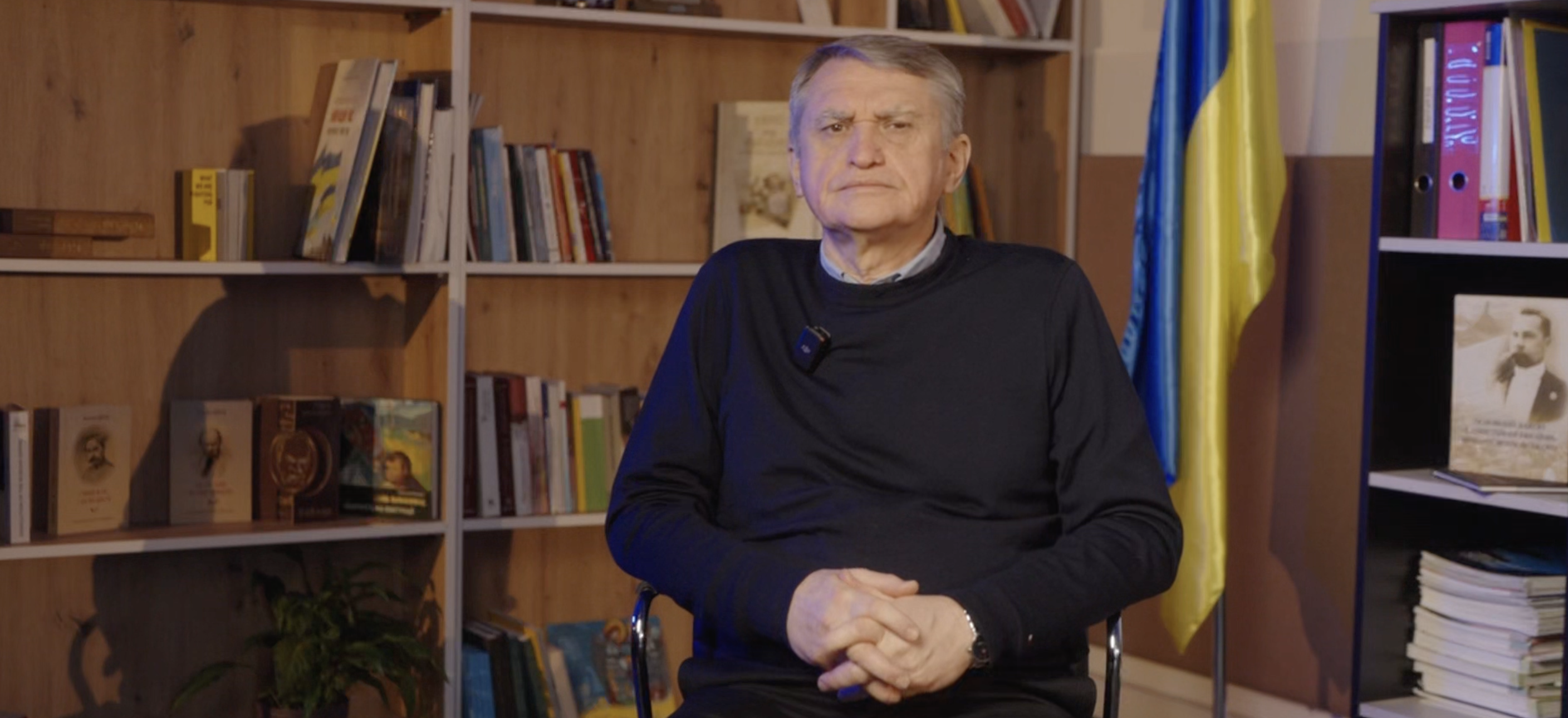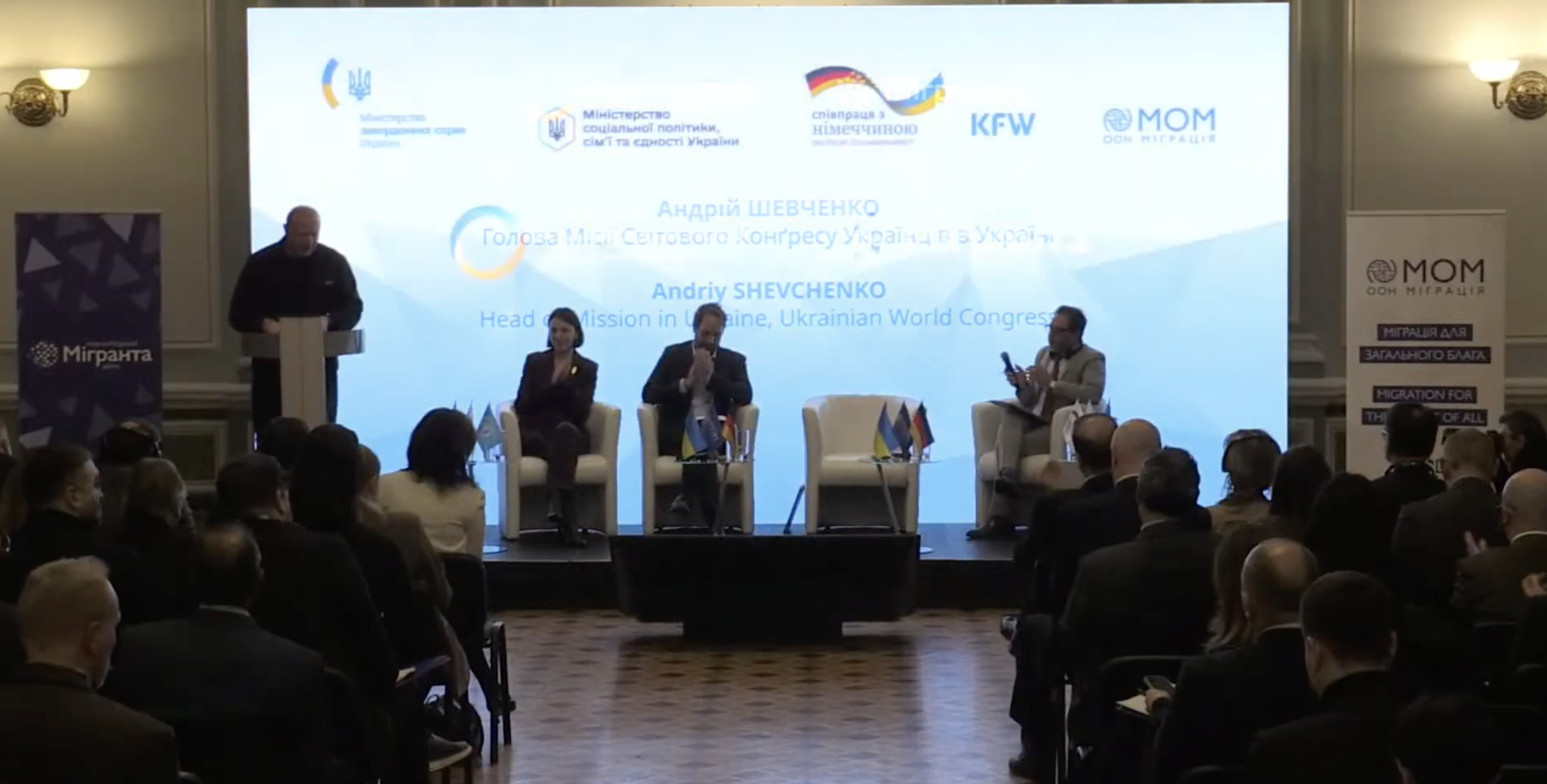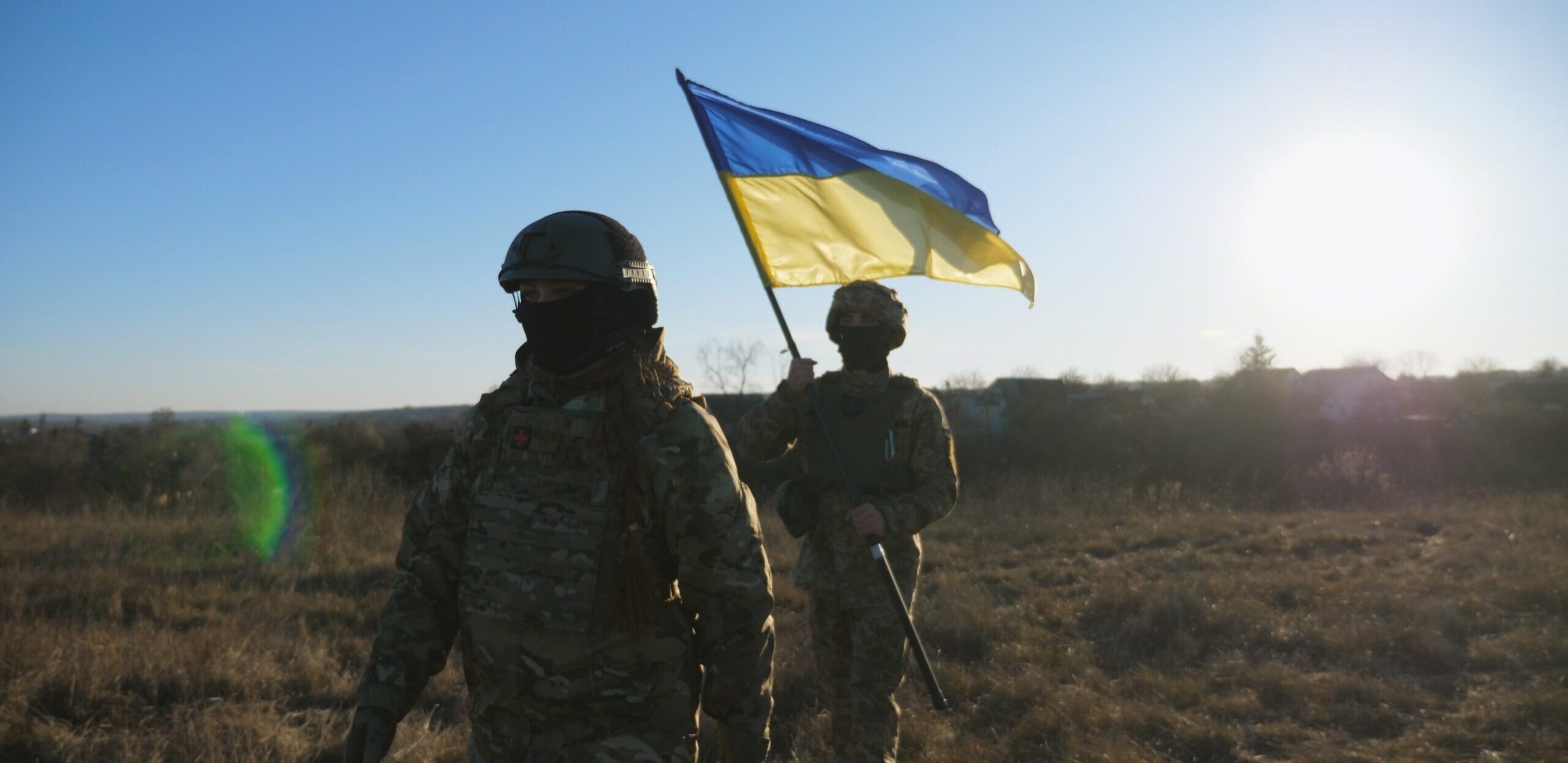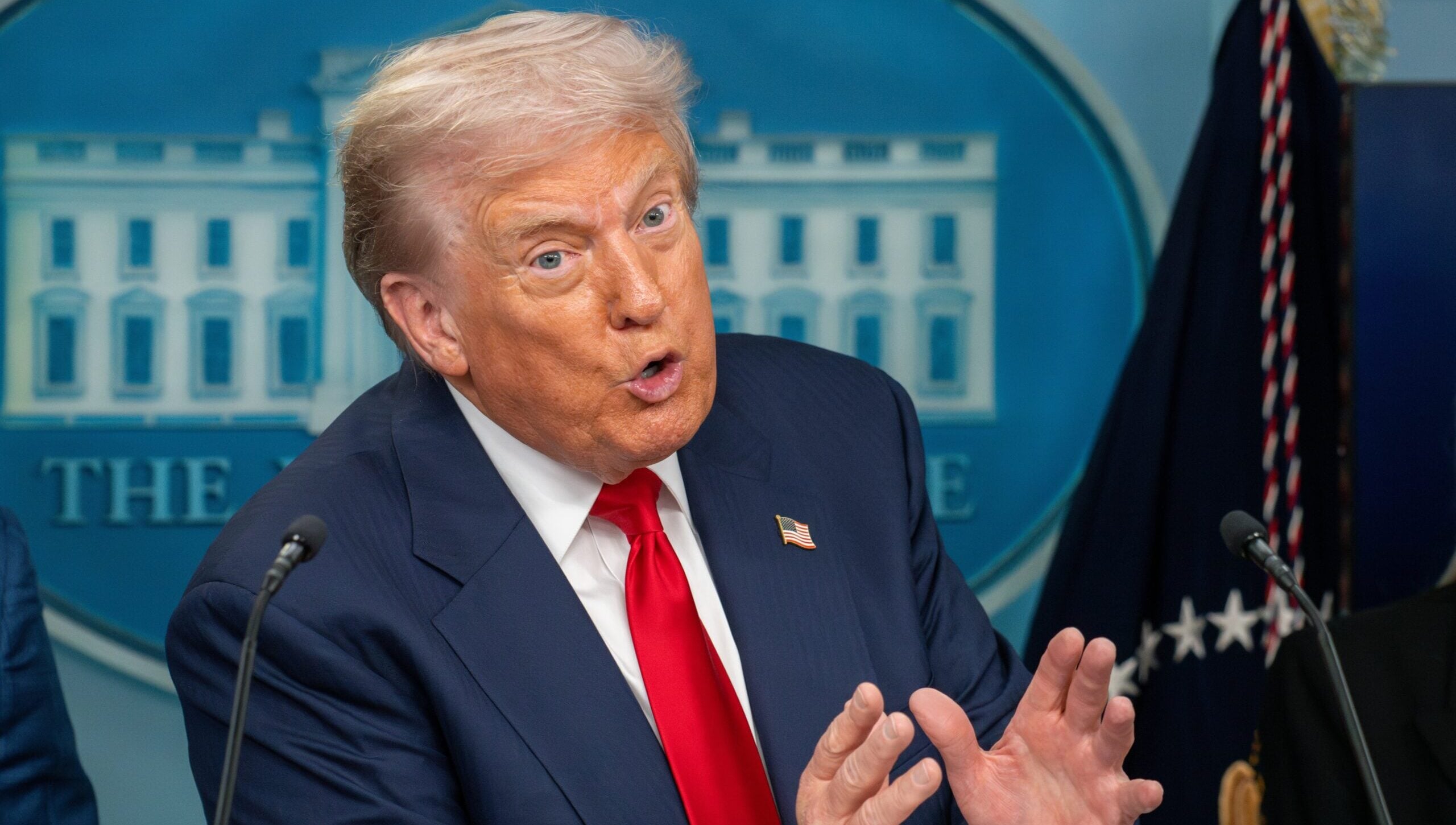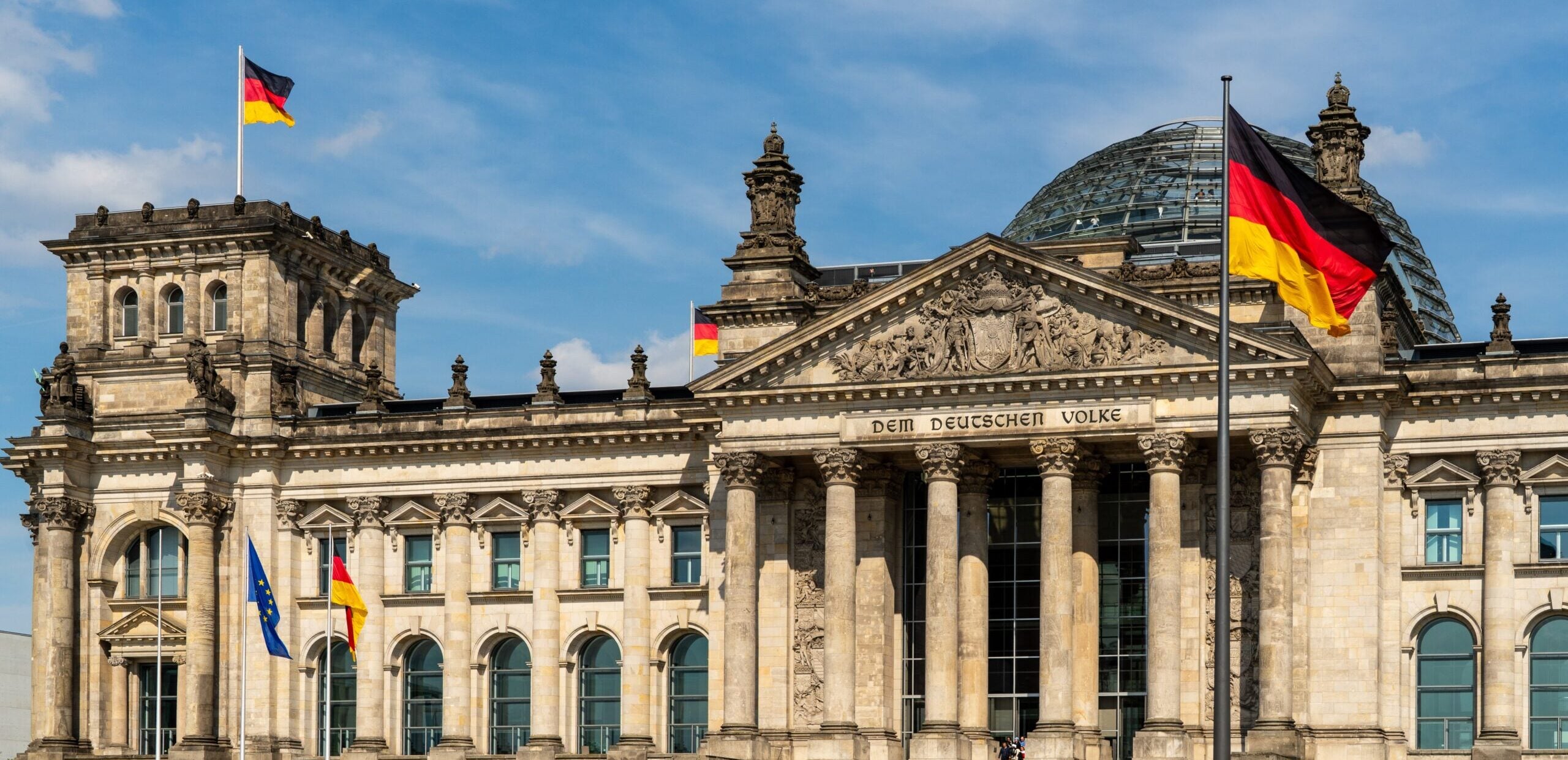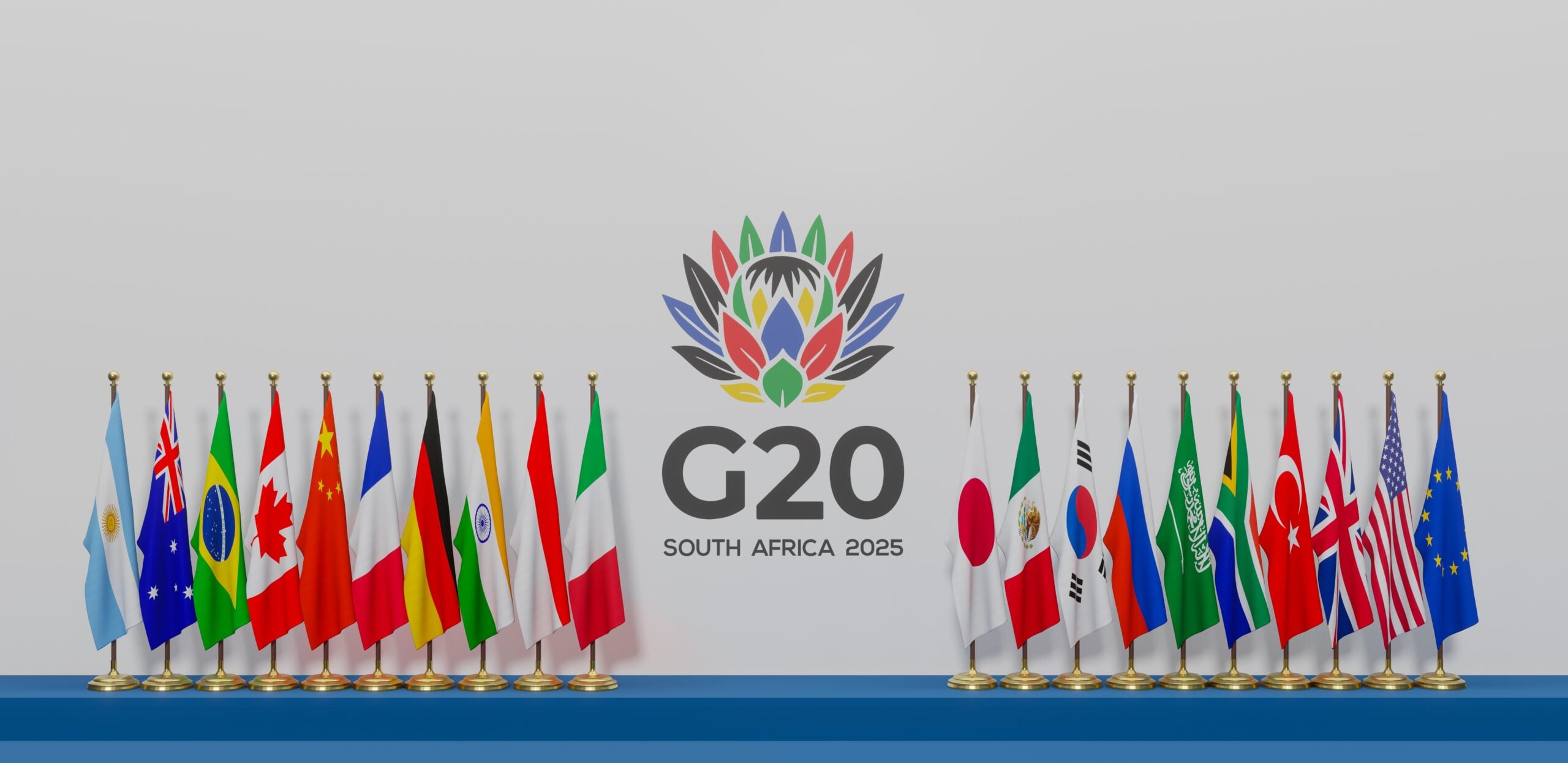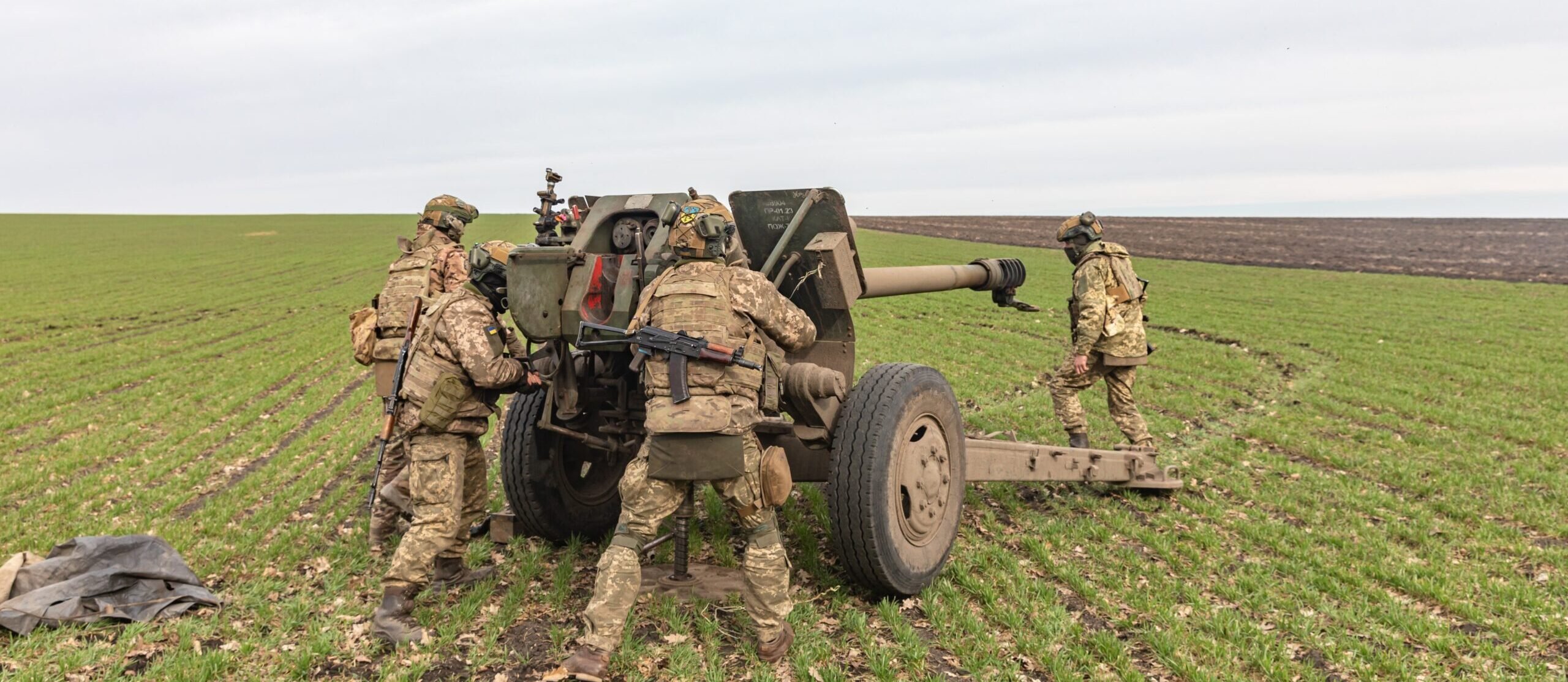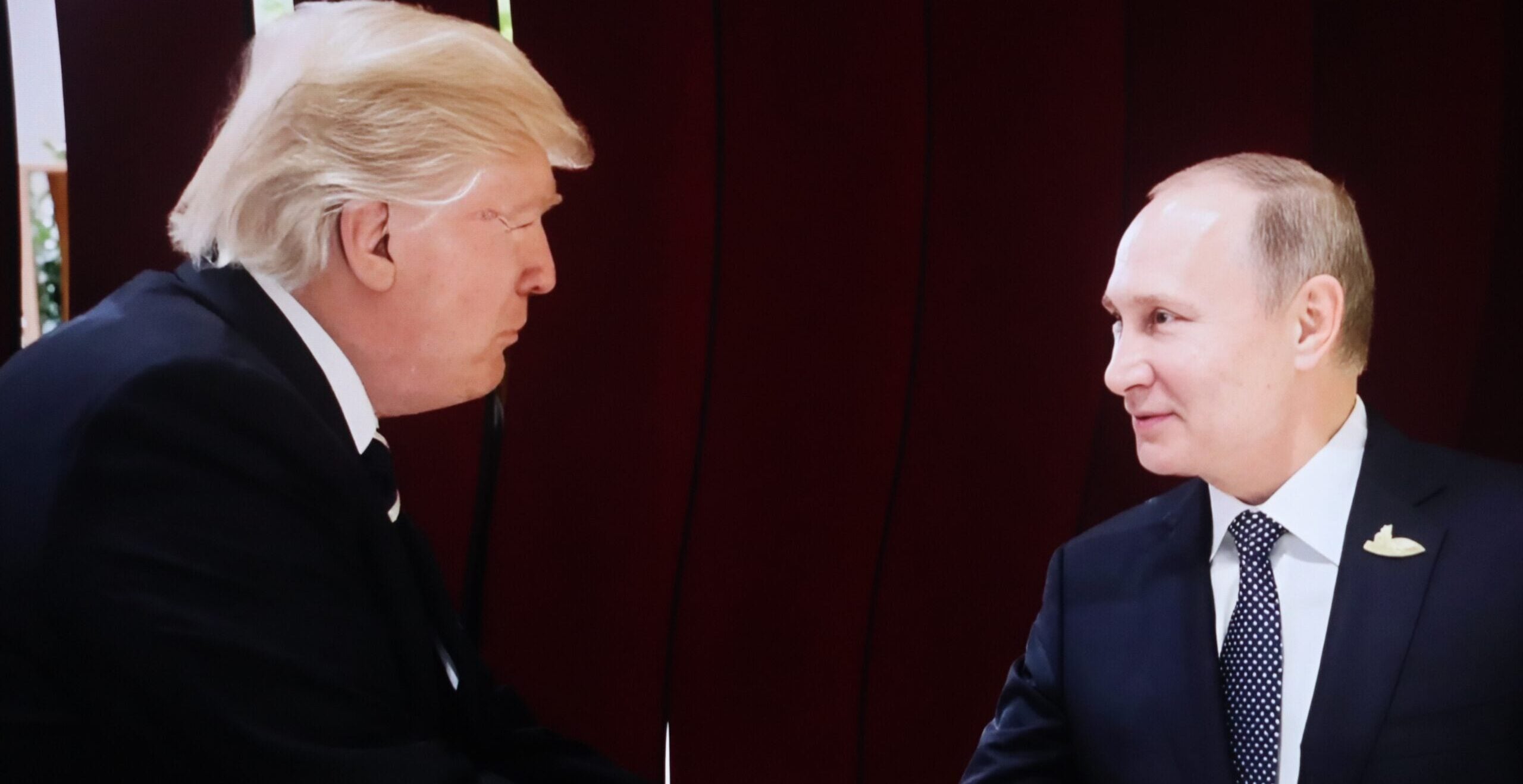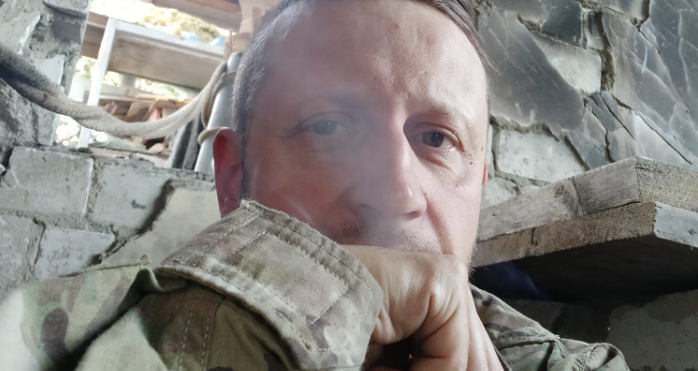
Myroslav Otkovych, renowned as a journalist before the war, is currently serving in the Territorial Defense Force in one of the “hot” battle zones in Kharkiv oblast. While his stories reflect the horrific realities of full-scale war, they also engage, inspire and instill hope for the future.
***
The sky grows grey. Night is gradually leaving the trenches. The grass in the steppe starts conferring with the ants. A goat looks at us in the distance, a fox disappears down its den. The dawn of a new day is imminent.
A bright young moon hangs low over the earth, its sharp edge barely touching the tilled black earth on the horizon, as if absorbing the human blood that gives it a crimson color.
We’ve arrived at our destination.
We’re “rotating in” to replace the soldiers we’ve come to relieve.
The guys come out of the shelter where the drones couldn’t see them.
I don’t recognize them at first: Is it really them?
Their eyes are wide and their pupils are small. Their facial muscles betray no emotion. Some are wearing expressions that can only be described as death masks.
A thought pulses in my mind:
“God, what have they been through?”
“It’s hell here,” Vepryk intuitively replied to the question on my face.
Handshakes, hugs and pieces of advice, one-two phrases each, short and clear:
“Myrik, take care,” says Separ, who is usually quick with jokes, but is now clearly subdued.
“Guys, you have to keep listening… keep an ear out for what’s flying,” Korotky adds with a tone of parental concern.
Takbir speaks at the very end, carefully whispering:
“It’s very scary here and it smells of death.”
Now I understand why my head hurts so much.
The unbearable stench of corpses is everywhere, eating away at my lungs and brain from the inside. The bodies of the KIAs have been lying in the swelter for several days now. The orcs concentrated their fire on the road, denying any opportunity to take them away.
Yes. It is scary here and it smells of death. And of gunpowder. And of freshly-cut grass. Grass mown by artillery…
By the time dawn arrives, we’ve settled into a small basement. We sort through our gear and determine our firing positions. The suspicious silence is suddenly broken by the first explosion of the day.
Their mobile artillery starts firing at us, one round right after another.
The enemy artillery is firing mercilessly at the trenches, destroying bunkers and sowing death.
We prepare for our turn in battle, not because we’re some kind of heroes, but because we are right here, right now.
Brother for brother.
The radio crackles:
– Spider! Are your eggs ready?!
– Ready!
– The orcs are crawling towards the grove of trees. Sending coordinates. Toss’em some zucchinis.
– Ten-four.
Now it’s our turn. Booms and whistles fill the air.
We go out into the open. I set the mortar barrel’s directional angle. Seconds drag out like minutes. Bullets whistle overhead. Automatic fire and the baritone of the machine gun. There’s our grove, the rusnya is right behind it.
My compass needle stubbornly refuses to point north. We are positioned in close range to one another, so we need to be very accurate. So, we don’t hit our own guys. There is no room for error.
Foosh-khveeeet… an enemy shell lands somewhere close.
The platoon commander loses his cool. Restless, he hides in the shelter and yells at me through a hole in the wall:
“Faster! Faster! Do you understand?!”
I try to focus on getting the compass needle to work.
Foosh-khveeeet – another enemy mine whistles past, swallowing the air as it lands nearby. I manage to fall to the ground in time, and assume the “turtle pose”: your back towards the sky, legs underneath you, hugging your knees, with your head retracted into your shoulders. That way there’s a greater chance that the shrapnel will hit your body armor, if it does.
This time it missed. I get up and get back to work.
I am beside a lone wall that is still standing. A herd of homeless goats is taking cover behind it.
“Mbe-e-e…b-e-e-e,” is all I can hear, before the hysterical falsetto weighs in again: “Faster! Faster!”, followed by more “mbe-e-e…b-e-e-e.”
War affects people in different ways: some grow braver in the face of danger, while others shutter within themselves and lose their minds. So, it’s important to carefully choose your battle mates.
I am glad that a couple of reliable brothers-in-arms are nearby: Fashion and Technic.
Foosh-khveeeet…
Another shell flies by. Que sera, sera. I don’t fall down this time. I continue working.
The mortar is pointed towards the target. I adjust the horizontal and vertical levels and turn the dials on the aiming mechanism to the necessary setting.
That’s it – it’s ready!
I yell out: “Fire!”
Bakh. Ba-bakh-bakh!
Technic and Fashion take turns dropping our magical zucchinis into the muzzle. They are fearless and cold-blooded. The zucchinis fly furiously, landing in the heart of the enemy group, detonate, and transform the bad orcs into good ones, with multiple pieces of metal shrapnel.
Technic has lost his hearing.
“I can’t hear anything!”, he yells out.
“That’s okay, stand back!”, I answer him.
Fashion stays silent as he scans the surroundings. I recognize his gaze: it’s the focus of a hunter. He’s the kind of soldier who won’t think twice if ordered to go on the attack.
Technic is visibly nervous, not so much for himself as for the rest of us. His mission is twofold: he’s also a medic. A combat medic. He rescued our officer during the previous battle, applied a tourniquet and saved his life.
We return to the shelter in order not to give Technic any more work.
Our job is done.
The sounds of rifles grow quieter. The enemy reconnaissance unit has retreated. Finally, our heavy artillery gets to work. It was our job to stop the invaders from advancing, now it’s their job to finish them off. There will be fresh minced meat.
We soon get a report from our intelligence in the field: The wagnerites were advancing at us. In the previous battle, it was enemy marines. And it’s like that day after day. Russia is losing its cannon fodder, forcing it to send elite units into battle.
And who are we? The 130rd Territorial Defense Battalion from Kyiv.
Ukrainian artists, technicians, journalists, chefs.
We’re no scaredy cats. We’re full of fury and hardened by battle!
After all, we’ve been in the army for a full four months:)
So, what happened to the wagnerites?!
We listen to the radio.
We need to know how our guys are doing in the trenches.
The airwaves tell us: our evacuation vehicles are approaching the village outskirts. Some are WIA, others are KIA. They’ve found another one, he’s in very bad condition.
Rudy has died! A piece of shrapnel penetrated his helmet and got him in the head. Rest in peace, my brother! In the kingdom of heaven! Honor and glory!
I don’t feel any emotions anymore.
My one thought is: Water!
The radio pipes up again: the WIA is now KIA, they couldn’t get him out in time, the evacuation vehicle left without him…
The story of the advancing enemy reconnaissance group is one that’s repeated every day. The rusnya crawl forth like cockroaches out of every crevice. We’re forced to fertilize the Ukrainian steppe with their bodies. They rarely collect their own. The harvest promises to be a good one!
On the fifth day of battle, our eyes started to resemble those of the brothers we had relieved. Nobody was prepared for this level of intensity.
Our position on the frontlines is in the northern part of Kharkiv region. Ground zero, so to speak. Here, war forces you to play roulette every day. Like it or not, you understand that all bets have been placed when a full volley of Grad rockets comes flying into your sector. All you can do is wait for the quiet to understand whether or not you’ve won.
Blasts come several times every second. The ground shakes and shrapnel flies. The vibrations from the strikes punch you in the ears, your eyes grow dark and all your internal organs reverberate. If a 122-caliber hits its mark, then you can be sure it’s game over.
It’s hell outside the walls of the shelter. Without exaggeration. The sky disappears in a cloud of dust and smoke. The bright and beautiful day becomes night. Tongues of fire lick the walls of the demolished house as flames peer into its basement and set the surrounding grass on fire.
I braid my body into the “embryo pose” and count the flying missiles: one, two, three… until I reach forty: that’s a full bank of Grad rockets.
It’s during moments like these that you form an intuitive connection with everyone who is thinking of you at that very moment.
This form of ESP works without fail. Your brain receives the signal like a modem. Everyone who is “online” is your “subscriber”. Your universe. Your family. Your true and real friends. They create an invisible dome over your head, keeping the sky safe and directing the rockets toward empty fields, or deactivating the rockets as they whistle by, before burying themselves into the ground, where they will remain until better times.
There are no half-tones in war, everything is either “yes” or “no.” Plus or minus. It doesn’t work any other way.
Writers don’t mention that part in their books, and cinematographers typically depict war with heroic notes, creating drama out of tragedy. Because normal people won’t buy tickets to see the “movie” we’re actually living here.
We’ve completed our mission and come back alive from our rotation. But we’re different: the battles we survived leave indelible scars in our eyes, as does the light of the crimson July moon over the nighttime steppe.
We’ve finally collected the bodies of all of our fallen brothers. Every one of them will be laid to rest with the honors they deserve. Only then will they find eternal peace in the raw earth.
P.S.
Why am I writing all this? Because you’ve asked me to write more, and you’ve told me that it’s interesting. I guess these stories help fill the void that remains after you’ve read the official reports about the events on the frontlines. I understand you.
Not everyone is capable of getting a handle on their emotions and resisting the temptation of moral desertion. But that only leads to fatigue and apathy. Now is not the time!
The frontlines need each and every one of you.
Do what you can: Speak up! Pray! Act!
We won’t let you down!
Our soldiers are made of concrete and steel.
I may be an exception, but I do have incredible examples to follow.
And you have someone you can count on.
Glory to Ukraine!
***
Support the defenders of Ukraine’s freedom! Visit www.unitewithukraine.com
Every donation counts!
